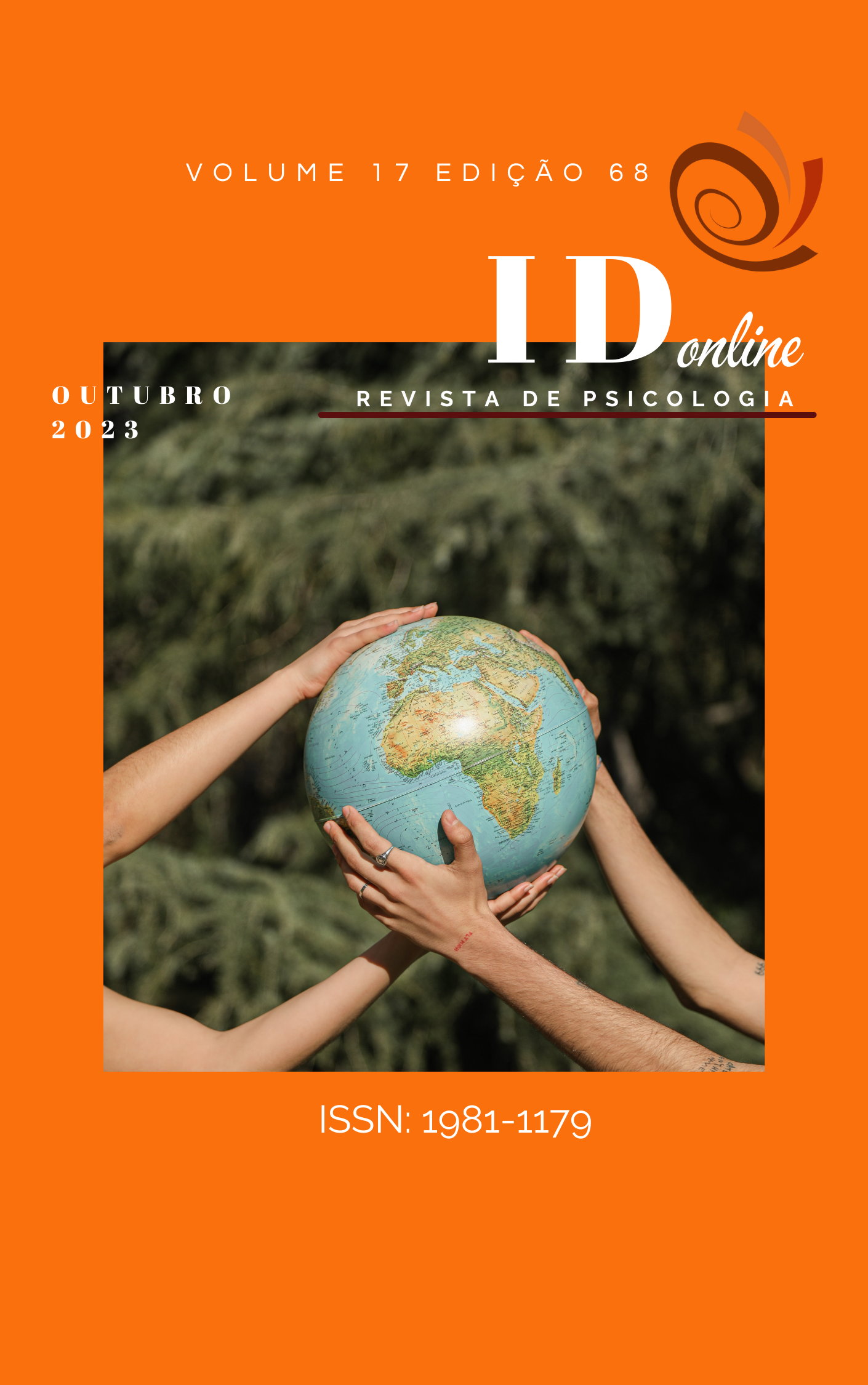A Importância da Musicalização no Processo de Ensino-Aprendizagem na Educação Infantil
DOI:
https://doi.org/10.14295/idonline.v17i68.3859Palavras-chave:
Educação infantil, Musicalidade, Ensino-aprendizagemResumo
Nesta pesquisa, analisamos a importância de a musicalização ser desenvolvida na educação infantil, atuando como um dos mecanismos no processo de ensino-aprendizagem. Como objetivo geral, verificamos as contribuições proporcionadas pela musicalização no período da infância, em relação ao campo pedagógico, na Educação Infantil, e a ainda, identificar como a musicalização atua na interação e na aprendizagem dos discentes; avaliar a importância de contextualizar a musicalização diante das “rotinas” vivenciadas em salas de aula; especificar que a música presente nessa etapa é uma metodologia construtiva para a aprendizagem. A pesquisa é de natureza qualitativa sendo aplicado o método dedutivo. Diante do contexto a ser analisado dispomos de um registro científico de origem exploratória, fundamentando-se com procedimentos técnicos de uma revisão bibliográfica e documental. Os resultados obtidos perante o estudo científico realizado apontam que a música possui valor positivo e significativo para o processo de ensino-aprendizagem. A musicalidade trabalhada de forma contextualizada e lúdica na Educação Infantil permite que o ser possa se desenvolver dentro de campos relativos ao “eu, o outro e o nós”. Quando associamos atividades lúdicas de maneira que a criança posso compreender o seu uso e importância constatamos que a experiência vivenciada se relaciona de forma direta com o autoconhecimento, o que irá repercutir nas suas relações com o meio o qual está inserido, permitindo assim a formação de uma consciência mais cidadã de formas respeitosa para com o outro.
Downloads
Referências
BRASIL. Referencial Curricular Nacional para a Educação Infantil. Ministério da Educação e do Desporto. Secretaria de Educação Fundamental. Brasília, v. 3. Conhecimento de Mundo. MEC/SEF, 1998.
BRASIL. Lei de diretrizes e bases da educação nacional. Lei 9.394 de 20/12/1996. Brasília: Presidência da República, 1996. Disponível em: http://www.planalto.gov.br/ccivil_03/leis/l9394.htm Acesso em: 21 de agosto de 2023.
BRASIL. Ministério da Educação. Base nacional comum curricular: versão preliminar segunda versão. Brasília: MEC, 2016. Disponível em: http://basenacionalcomum.mec.gov.br/abase/ Acesso em: 20 de setembro de 2023.
BRASIL. Lei 11.769 de 18 de agosto de 2008. Altera a Lei n. 9394/96, para dispor sobre a obrigatoriedade do ensino de música na educação básica. Brasília: Presidência da República, 2008.Disponível em: https://www.planalto.gov.br/ccivil_03/_ato2007-2010/2008/lei/l11769.htm Acesso em: 21 de agosto de 2023.
BRÉSCIA, Vera Lucia Pessagno. Educação Musical: bases psicológicas e ação preventiva. São Paulo: Átomo, 2003, p. 18-9, 82.
NOGUEIRA, M.A. A música e o desenvolvimento da criança. Revista da UFG, Vol. 5, No. 2, dez 2003. Disponível em: www.proec.ufg.br Acesso em 30 de agosto de 2023.
VIGOTSKY, Lev Seminotch. A brincadeira e o Papel no Desenvolvimento Psíquico da Criança.Tradução: Zóia Prestes. Revista virtual de gestão e iniciativas sociais, Laboratório de Tecnologia e Desenvolvimento Social (Programa de Produção da COPPE – UFRJ), p. 23-36 e 82, jul. 2008.
COPETTI, A. A. O.; ZANETTI, A.; CAMARGO, M. A. S. A música enquanto instrumento de aprendizagem significativa: a arte dos sons. XVI Seminário Interinstitucional de Ensino, Pesquisa e Extensão. UNICRUZ, Rio Grande do Sul, 2011.
PACCELE, Maria. História e legislação da música na escola. Disponível em: https://www.mariapaccelle.com.br/historia-da-musica-na-escola/ Acesso em: 21 de agosto de 2023.
PURIFICAÇÃO, Marcelo Máximo; CATARINO, Elisângela Maura; TEIXEIRA, Maria Filomena Rodrigues; SANTANA, Maria Luzia da Silva. A Música como Ferramenta Pedagógica: Relato de uma Experiência nas Aulas de Física no Ensino Médio. Id on Line Rev.Mult. Psic., 2018, vol.12, n.42, p. 249-260. DOI: https://doi.org/10.14295/idonline.v12i42.1294
SILVA, Vanilda dos Santos; LOPES, Cícera Alves Nunes. A Música como Instrumento Pedagógico no Processo de Ensino –Aprendizagem. Id on Line Rev.Mult.Psic., Outubro/2020, vol.14, n.52, p.606-620. DOI: 10.14295/idonline.v14i52.2740. DOI: https://doi.org/10.14295/idonline.v14i52.2740
Downloads
Publicado
Como Citar
Edição
Seção
Licença
Copyright (c) 2023 Edjessica Gleyce da Conceição Costa , Débora Benicio Alves Oliveira

Este trabalho está licenciado sob uma licença Creative Commons Attribution-NonCommercial 4.0 International License.
Os autores detêm os direitos autorais sem restrições, devendo informar a publicação inicial nesta revista, em caso de nova publicação de algum trabalho.










